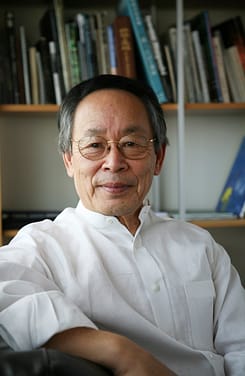
Prison gardens are increasingly common as a means of teaching practical skills, building community and in general reducing recidivism rates, but most focus on objectives such as vegetable production. Renowned garden designer Hoichi Kurisu is collaborating with a group of Oregon State Penitentiary inmates to create a Japanese-inspired healing garden out of a small space wedged between the massive prison yard and an imposing cellblock. The effort, spearheaded by two prison clubs, has been underway for about three years as inmates have worked to build a network of supporters among prison administrators, staff, volunteers and their fellow inmates.
Kurisu International has contributed designs, material, machinery and labor to help realize the garden. All hope that the garden will provide an experience that helps make rehabilitation possible. Prison officials will also be on hand at the lecture to discuss the project and its impact, and video footage will be shown of prisoners participating in the program.
About Hoichi Kurisu
Hoichi Kurisu studied landscape design and construction under Kenzo Ogata in Tokyo, Japan. He was landscape director for the Garden Society of Japan from 1968 to 1972, during which time he supervised construction of Portland Japanese Garden. In 1972 he founded Kurisu International, Inc., which has designed and built gardens including Anderson Japanese Gardens in Rockford, Illinois; Roji-en Japanese Gardens of the Morikami Museum and Gardens in Delray Beach, Florida; and the Richard and Helen DeVos Japanese Garden at the Meijer Gardens and Sculpture Park in Grand Rapids, Michigan. Kurisu’s gardens at the Samaritan Lebanon Community Hospital in Lebanon, Oregon won a 2006 Healthcare Environment Award for Landscape Design.
Kurisu International’s practice is grounded in the belief that encounters with nature are essential to mental, physical, and spiritual equilibrium. Extending into the prison environment is a natural continuation of the company’s vision of creating spaces that provide restorative experiences that demonstrate the necessity of natural places to physical, mental, and social wellbeing.
Additional information
The event is part of the Japanese Garden Training Center’s 2018 public lecture series. The Center is supported by the Japan Foundation Center for Global Partnership.